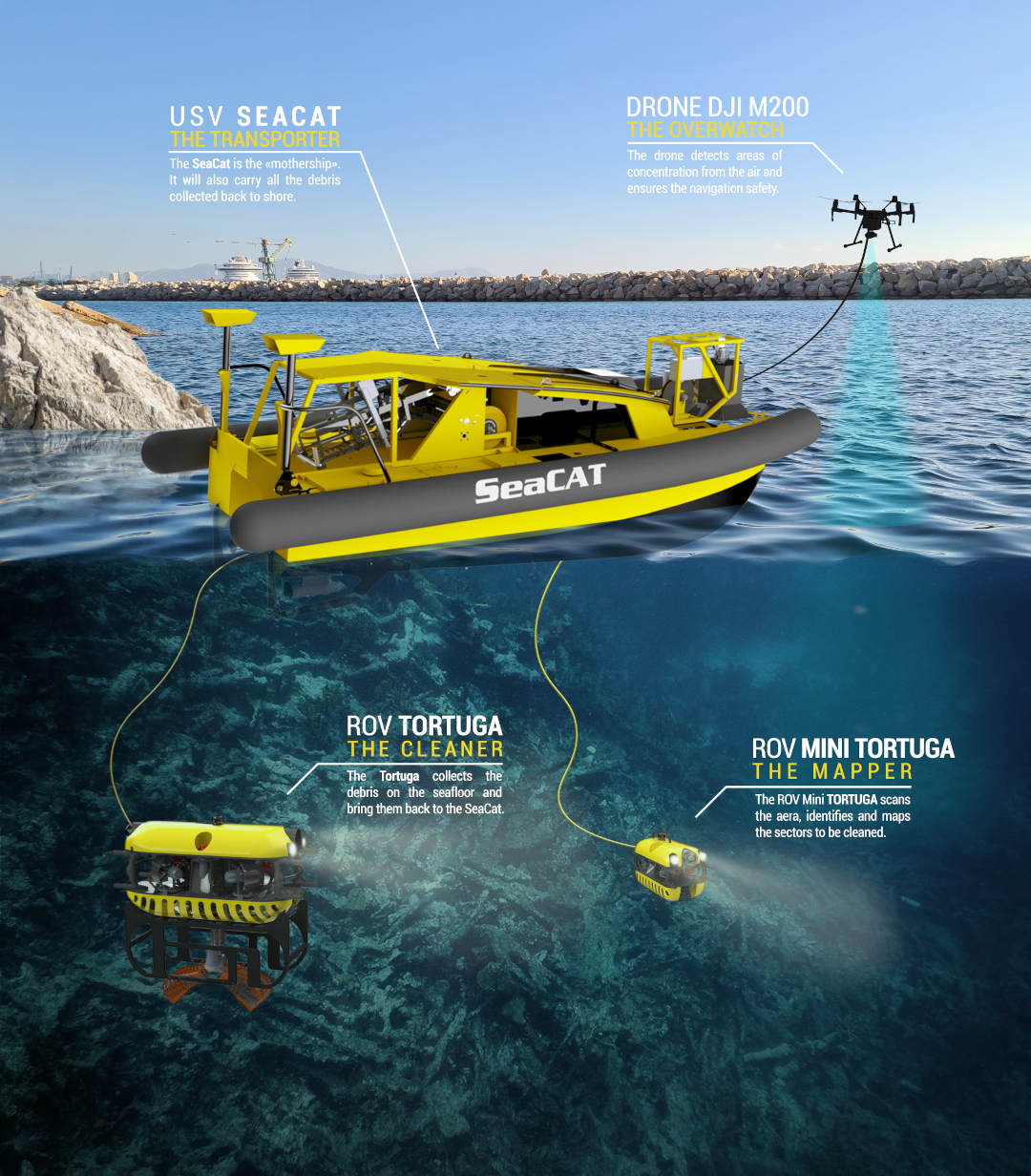Fighting plastic waste: SEACLEAR tests in the port of Hamburg
(Translated from original press release)
Eight partners accross Europe: Hamburg Port Authority (HPA), Fraunhofer Center for Maritime Logistics and Services (CML), Delft University of Technology (TUD), Dubrovnik Regional Development Company (DUNEA), SUBSEA TECH SAS (SST), Technical University of Cluj-Napoca (TUC), Technical University of Munich (TUM), and the University of Dubrovnik (UNIDU) are working on the EU-funded project SEACLEAR on the development of an autonomous system to clean the seabed.
The SEACLEAR system consists of an autonomous vessel with two underwater robots that identify and collect underwater debris. The system, whose individual components have been developed by various project partners since January 2020, was presented at the ITS Congress 2 021. Now the individual components are being brought together for the first time and the processes are being tested under real conditions as part of a test campaign. The area of the Hansahafen in the Port of Hamburg acts as a test location.

“Although we in Hamburg do not have the challenge of having to salvage large amounts of plastic waste from the Elbe, the port offers ideal conditions for the tests of the SEACLEAR system. The turbid water of the Elbe, the tidal currents and also the ship traffic pose special challenges for the system. For us, these tests also provide important experience when using autonomous systems” says Jens Meier, CEO of the Hamburg Port Authority.
“We are pleased to be testing the system for the first time in the port of Hamburg,” says Carlos Jahn, head of the Fraunhofer Center for Maritime Logistics and Services. “The results of the week-long test runs will drive our developments in the area of system integration as the project progresses.”
In the course of the tests, among other things, prepared samples of waste particles are lowered to the bottom of the water. The task of the small diving robot is to record and mark the finds in the previously created map of the area.
Tags: press release

